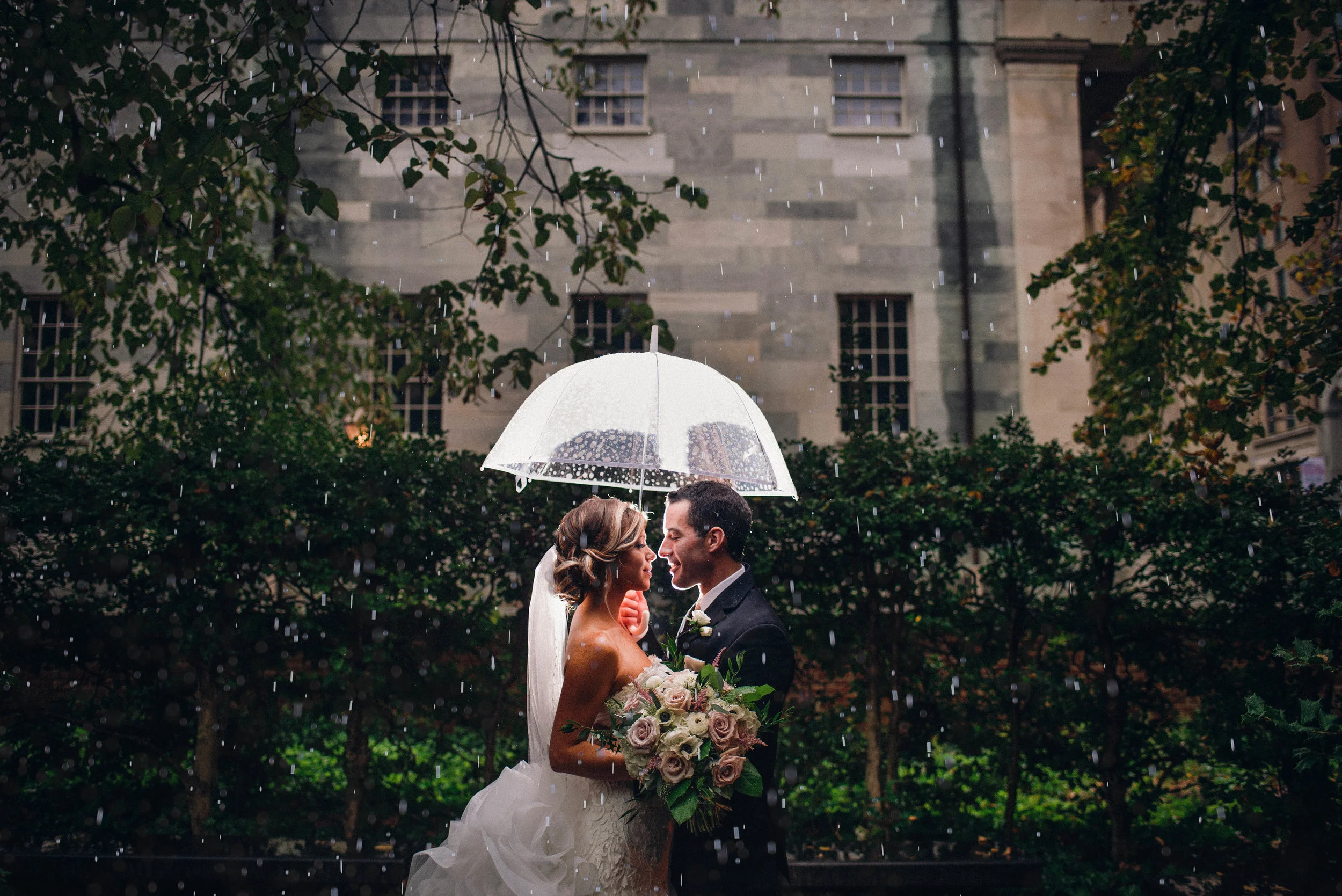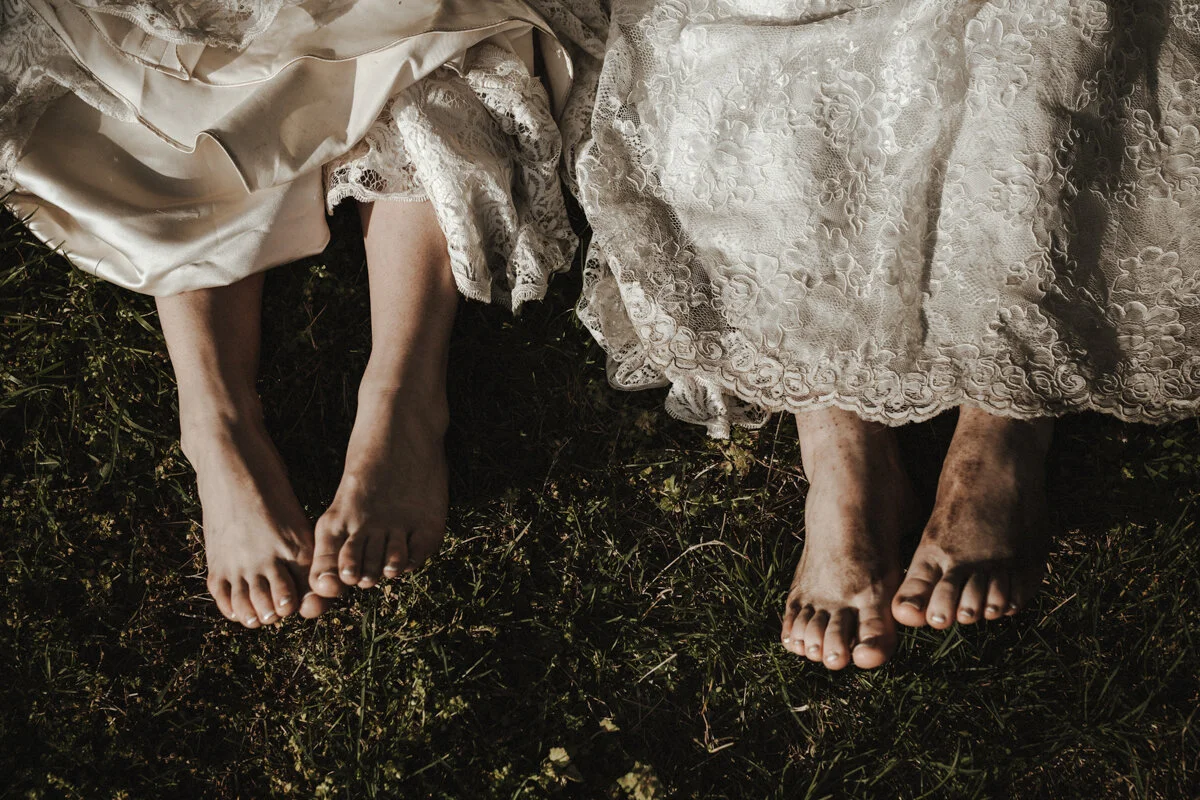Woke Wednesday // Meet Charmi Patel Peña, New Jersey Wedding Photographer
/Charmi Patel Peña is a woke wedding photographer in New Jersey. In this interview with editor Liz Susong, she talks about forming her identity as an Indian-American woman, defying pressures to pursue a numbers-based career, and disrupting patriarchal culture from the inside.
Liz: Hi Charmi! Thank you so much for taking the time to do this. Where are you located?
Charmi: Oh, of course. I'm in Princeton, New Jersey.
Liz: Lovely! Could you share with us a little bit about your background? What was growing up like for you?
Charmi: My parents are Indian immigrants who came to America in the 70s. At the time, Americans lacked enough doctors and actively recruited abroad, and my parents came over because of that (they’re both doctors). I actually grew up in a bit of a bubble. We lived in Queens when I was really little and moved to a suburb in New Jersey when I was eight where I lived through high school. Of the 15 houses on our street, seven were Indian families. Our area had a lot of diversity, though that didn't prevent those random one-off experiences that are confusing for a child to process. (A little go-back-to-your-country here, a little are-you-a-dot-or-a-feather there.)
Liz: How did you process those microaggressions as a child?
Charmi: I am a solid pusher-downer of feelings. (laughs) I just kept trucking through, you know? Like: nah, I won't go back to anywhere; don't be jealous that my car is nice. It helped a lot I think that I was surrounded by a ton of Indian and black people, so even when weird things were said, I never felt alone. It's actually harder for me now as a parent, to hear someone say something to my child.
Liz: Right. So did you stay in New Jersey once you graduated high school?
Charmi: Mostly I didn't leave. I went to Rutgers, which is 20 minutes away, and then moved to Princeton after I got married — 20 minutes in the other direction
Liz: What was college like for you?
My parents always kept me connected to my culture, but to share it with peers was different. It let me not have the pressure of "just fitting in" or having to discard that part of me. I could be American with them AND Indian with them.
Charmi: This is kind of a backwards story, but I remember my freshman year — I had friends of literally all shades and sizes — but the Indian kids all hung out together and called me "whitewashed." And then one night I was watching a Hindi movie, and some of them walked in and were like "you understand this???" And of course I did. That was a bit of a one-time thing, though. I think that a lot of them had their guards up, as we just do sometimes, and they weren't sure I could be trusted. After that, I spent more time with the Indian community than anyone else...sort of putting myself into a safe bubble, if that makes sense.
Liz: Yeah, that makes sense! Do you feel this was an important time for developing your own racial/ethnic identity?
Charmi: YES!
Charmi: I was a part of Indian dance competitions, and helped organize shows, and participated in Gandhi Day of Service. My parents always kept me connected to my culture, but to share it with peers was different. It let me not have the pressure of "just fitting in" or having to discard that part of me. I could be American with them AND Indian with them.
Liz: Absolutely. So what did you study in college? Did you have career goals at that time?
Charmi: Ha. You know, I think that even though I traveled the world with my parents and literally could have done anything, I felt pressure to do very few things. Law, finance, accounting...I double majored in IT and economics. I had no interest in either one at all. I would do things so differently if I knew more about my options.
Liz: It sounds like you were experimenting with a more creative life while studying those numbers-based fields.
Charmi: I've always been really good at numbers, so it seemed like the "smart" thing to do. But yeah, I think my heart has always been somewhere else. Photography, architecture, and speech writing/public policy (as different as those are) all attract me much more than those numbers did, even if I was good at them.
Liz: So what did the pathway look like from IT to photography and entrepreneurship?
Charmi: Crooked. I didn't like any analyst jobs (omg, a cubical). So, I worked retail and got into Nordstrom's leadership program. I thought buying would be a good combination of my numbers skills and the creative parts of me. But I hated working there; it was a miserable girl versus girl environment for me. I think we're taught at such a young age that there is limited space for us, and oh boy do I think that was alive there. So, I quit. And not to be a cliché, but I got the camera as a gift from my husband on my wedding night. It was a hobby while I job hunted. And then it became something I did for friends. Then it didn't make sense to do it for free. Then I said ONLY PORTRAITS! And then someone asked me to do a wedding, I said no, and she refused to take no for an answer. So, she and my husband sort of found my path for me. Funny, how things work out.
Liz: Wow! And when was that?
Charmi: September 2008 was my first wedding!
Liz: So eight years later, is photography your full-time job?
Charmi: Yes!
Liz: Awesome. What intersections have you found between your identity as an Indian-American woman and your creative work?
Charmi: So, I really meant to never shoot Indian weddings. They're incredibly long–several days at times! But I am so attracted to them because they are so much of who I am, so I basically shoot 90 percent Indian weddings. What happens the rest of the time is that non-Indian people are attracted to the color and "life" in my photos (that’s what they tell me). And I think that THAT feeling in my work is a direct result of the fusion that I am.
Liz: Do you identify as woke, feminist, and/or a social justice advocate?
Charmi: I hesitate to take on any of those only because I worry I won't live up to my own expectations of them. But I would say I try every day to be ALL THREE. I just try everyday to make sure I'm doing what I can to deserve to call myself them.
Liz: Do you think there is space to practice those values in the wedding industry as a photographer?
Charmi: YES!! I sometimes might be pushing the boundaries of what my "place" is...but typically at the end of an Indian wedding, the groom will drive away with the bride in the passenger seat. I knew that my bride was a feminist like me (I tend to attract like-minded people!), and I asked if she wanted to drive. She did! And it seems small, but I loved shooting her taking charge. Tradition smadition. It was awesome. I also come from a patriarchal culture in a country where I'm told I, as a woman, can be anything I want...so I'm forever trying to change the face of what women can do in that community. I'm regularly assumed to be the assistant and make that correction kind of loudly. (laughs)
Liz: Yeah, none of that seems small.
Charmi: I will also actively seek couples that may feel unsupported and make sure to tell them that I have their back. I shot an Indian/Bahamian wedding where the families had a really hard time at first, and it was important to me they knew that I had their back. I'm shooting a lesbian wedding this summer as a gift to a high school friend, because– money where my mouth is? I have her back.
Liz: What changes would you like to see in the wedding industry?
Charmi: Ah, what I wouldn't give to see more people of color everywhere. When you search on Pinterest for weddings, it's a lot of the same exact thing. And some of that is on us. I know that I need to put out more, submit more. I have that 100% complex and I try to remind myself men don't. I'm trying to accept opportunities to speak so I can do my part to participate.
Liz: What advice do you have to other people of color and feminists working in the wedding industry who are maybe at an earlier stage of their business?
Charmi: Don't be afraid to take risks and put yourself out there. That 100/60 thing is real. Women feel they have to meet 100 percent of the criteria to do something. I'm not saying men don't feel that way–but fight through it and submit weddings anyway, show work anyway, apply to speak anyway if you have something you think people need to hear. I put a lot of my personality out there: my politics, my personal feelings on feminism, Black Lives Matter and more. I'm sure it's cost me something, but I've gained a lot of lovely like-minded couples.
Liz: Yes, and working with like-minded couples is worth A LOT!
Charmi: YES!
Liz: I think you make a great point: wedding vendors are influencers in our culture. We have a lot of power to use our web presence and voice for good. What else would you like to share about your own experience? Are there any words you think we need to hear right now given the political climate?
Charmi: I read something, and I think we all need to hear it over and over. Have hope, and not optimism. Optimism lets you sit back and let other people do the work, and you can't be sure they will. Hope gives you something to work towards. So, while it feels nasty out there–like we've taken steps back, and maybe we have...if we have hope and keep speaking out, supporting each other and working for something better, we'll be okay.
Liz: Thank you, Charmi.




























